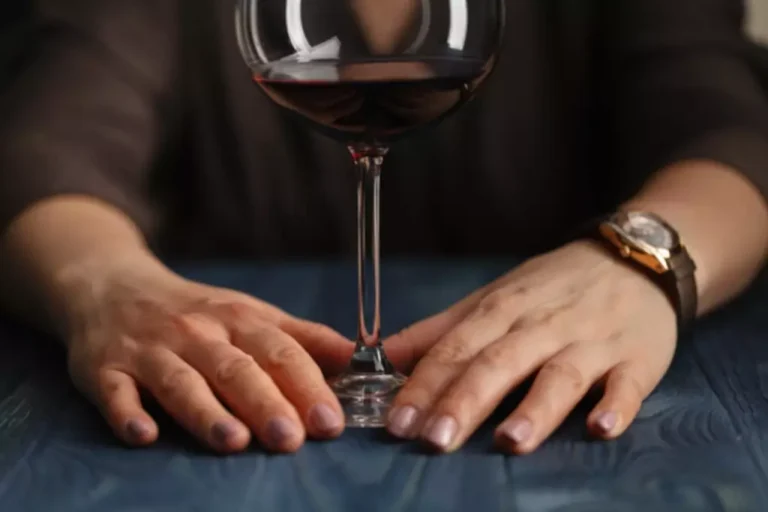Should I be using alcohol to help me sleep?

Certain medications may cause insomnia as a possible side effect. For example, people may experience steroid-induced insomnia, or antidepressants may worsen or induce sleep disorders. Having the occasional nightcap to unwind is no biggie and may help you fall asleep faster. Drinking a light to moderate amount of alcohol (one or two standard drinks) before bed may not have much of an impact. Finally, going to bed with alcohol in your system increases your chances of having vivid dreams or nightmares, or sleepwalking and other parasomnias. Alcohol has been linked to reduced rapid eye movement (REM) sleep.
- This article reviews the relationship between alcohol and insomnia, including how alcohol can affect sleep quality alongside the risks of poor sleep quality.
- If you don’t fall asleep within about 20 minutes of going to bed, leave your bedroom and do something relaxing.
- For example, people who’ve had alcohol may experience more frequent periods of lighter sleep or being awake, especially during the second half of the night.
- It’s also worth remembering that alcohol isn’t solely responsible for disrupted sleep.
- This should give the body enough time to metabolize the alcohol and get it out of one’s system, allowing them to enjoy unaffected sleep,” explains Dr. Hsu.
Charitable Care & Financial Assistance
Research shows that alcohol actually has a disruptive effect on your sleep the rest of the night and messes with sleep quality and quantity. It has a sedative effect that helps you relax and makes you drowsy, so you fall asleep faster. Alcohol further increases the effects of sleep apnea by relaxing the muscles in the throat, collapsing the upper airway and lowering oxygen levels. This not only worsens pre-existing sleep apnea but may also lead to episodes of sleep apnea in individuals who previously did not experience it. So, does alcohol help you sleep or is it actually interfering with your quality of rest? Read on to find out how alcohol can affect your sleep, and why—as well as insight into the health benefits of getting enough shut-eye.
- In particular, avoid heavy or large meals within a couple of hours of bedtime.
- It’s true, sleep may happen more quickly after consuming a drink or two.
Does alcohol cause insomnia or poor sleep?
Similarly, studies on bereaved individuals have found that using alcohol to cope with grief increases the risk of developing major depression, which is itself a risk factor for sleep disturbances. The circadian rhythm also plays does alcohol help you sleep an important role in kidney function. While your internal clock regulates the kidney’s release of electrolytes and works to filter fluids, alcohol inhibits these processes. It is recommended you increase your daily water consumption and avoid drinking alcohol before bed to prevent its dehydrating effects.

How many hours before bed should you stop drinking?
Unlike sleeping pills, CBTi helps you overcome the underlying causes of your sleep problems rather than just alleviating the symptoms. The transition from risky behaviours to bad habits and ultimately addiction is worryingly common. One contributory factor could be the effect of poor sleep on neurocognitive functioning. Parasomnias Alcohol increases the amount of SWS in the first third of the night. As a result it may precipitate — or increase the frequency of — parasomnias which occur during this stage of sleep. Using alcohol as a sleep aid may result in you believing the only way you can get to sleep is by drinking.
Proceed with caution when drinking before bedtime, as alcohol may be affecting your sleep more than you realize. This may be especially true if you drink alcohol to help you fall asleep faster, and then experience disrupted sleep later in the night without realizing it. Since even small amounts of alcohol can affect your sleep, the overwhelming consensus in the medical community is that alcohol is not an appropriate sleep aid. Before we look at the effects of alcohol on sleep in detail, here’s the basic bottom line. The more you drink, and the closer your drinking is to bedtime, the more it will negatively impact your sleep.

She is active within AASM and has served on numerous AASM committees, including the original Telemedicine Task Force. She also served as the inaugural chair of the Clinical and Consumer Sleep Technology Committee and is the current chair of the AASM Public Awareness Advisory Committee. People who go to bed with alcohol in their system may be more likely to wake early in the morning and not be able to fall back to sleep, another consequence of the rebound effect. The potential for insomnia treatment to influence alcohol-related consequences has significant implications for the prevention and treatment of problematic alcohol use among young adults.
- People with insomnia may have difficulty falling asleep or keep waking up during the night.
- Up to 40% of the general population experiences insomnia, while as many as72% of people with an alcohol use disorder may have the condition.
- Whether you have had one or multiple drinks, it’s best to wait for your body to fully process the alcohol before heading to bed.
- Insomnia is a common condition where a person has trouble falling asleep or staying asleep.
Circadian Rhythm Disruptions

Researchers found that chronic or habitual alcohol use before bedtime led to bouts of insomnia. Sleep problems, such as difficulty getting to sleep, frequent waking during the night and difficulty getting up in the morning, were also more common in people with alcoholism. As for whether certain types of alcohols are less disruptive to sleep, or if repeated light drinking impacts sleep quality over time4, we don’t have any good answers and it likely depends on the person. Although booze might help you fall asleep faster in some cases, it seems to have a net negative effect on sleep quality.
For the treatment of either disorder to be effective, both insomnia and substance abuseshould be addressed together. Someone in recovery from alcohol use may experience setbacks because of sleep-related withdrawal symptoms. People who wake up tired every morning may be more likely to lean back in to drinking to help them sleep better. But this can create a negative pattern that leads to more serious, long-term effects of alcohol on sleep. As research consistently shows, however, the opposite is actually true. Drinking alcohol might help you fall asleep—but it won’t keep you there.
Upgrade your bedding
While some people find that drinking alcohol helps them fall asleep more easily, alcohol ultimately has a negative impact on sleep. Even in moderate amounts, alcohol consumed in the hours before bedtime can cost you sleep and leave you feeling tired the next day. Based on data from roughly 160,000 Sleep Foundation profiles, nearly 90% of respondents who regularly consume alcohol in the evening have reported at least one sleep-related problem.



Sin Comentarios
Lo siento, el formulario para comentarios está cerrado en éste momento,